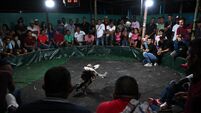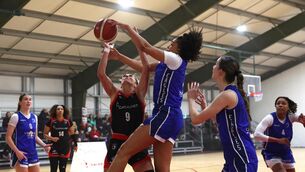Clare needed grenade to add to the hail of bullets

The best one can do is to point to the afternoon’s hinge moment. Eight minutes left, the underdogs three up. Cathal McInerney’s attempt from the left comes back off the crossbar and Podge Collins fails to find the net with his foot. Cork sweep down the field and 21 seconds later Pa Cronin has the ball in the net.
Is it a four-point swing? Is it a six-point swing? Decide for yourself. But the odds against Clare playing a match in the next 20 years when precisely the same sequence of events unfolds are astronomical. To a large degree, then, they were simply unlucky that the game’s big moment went against them.












